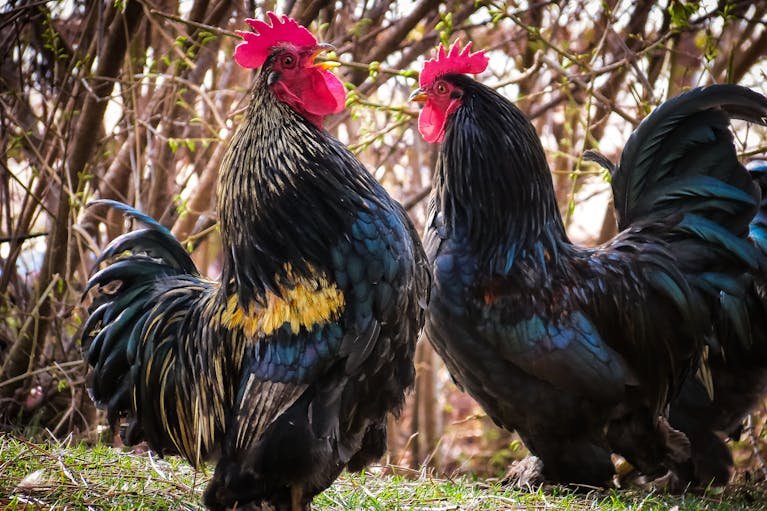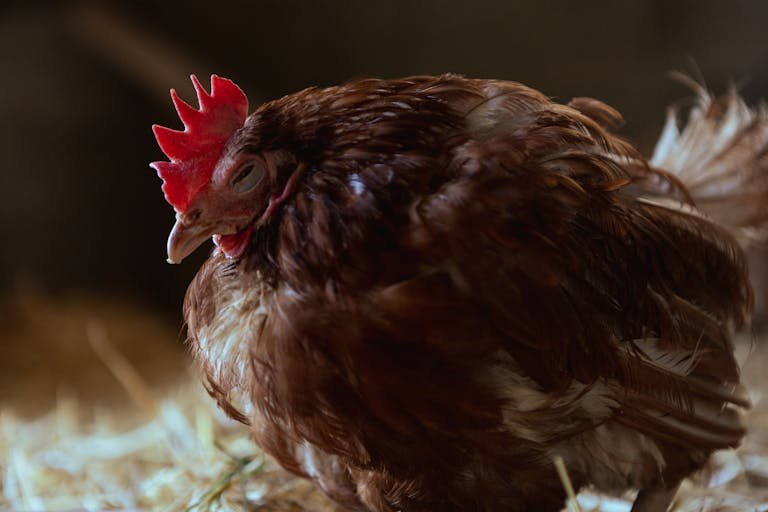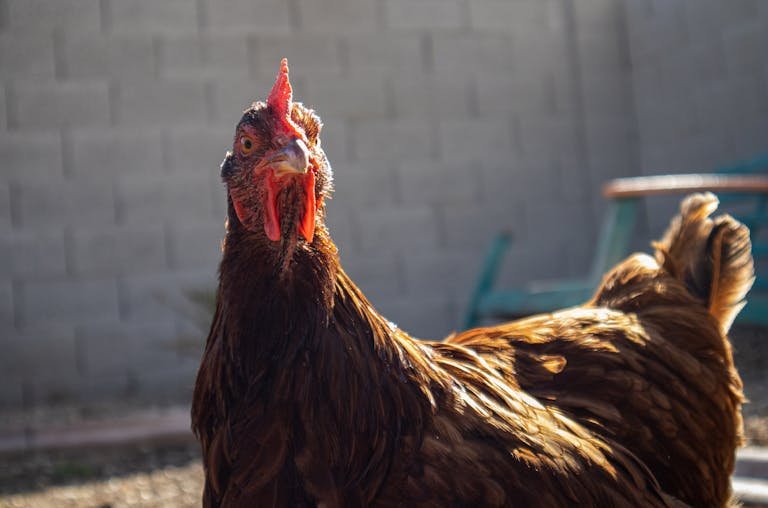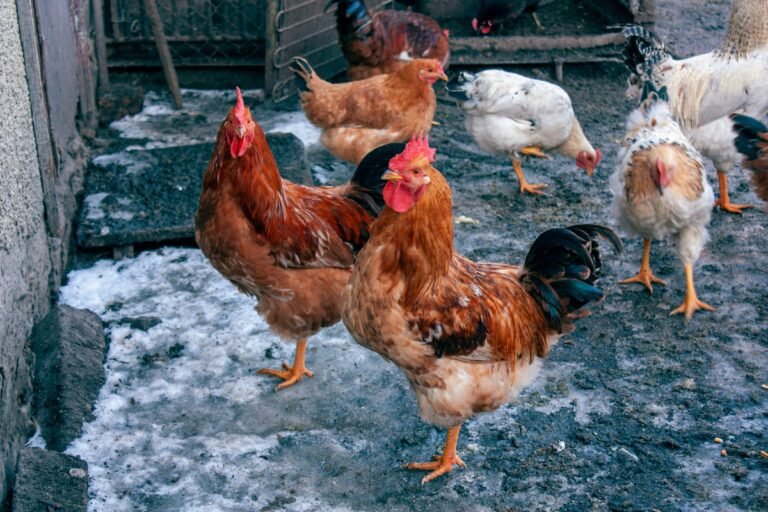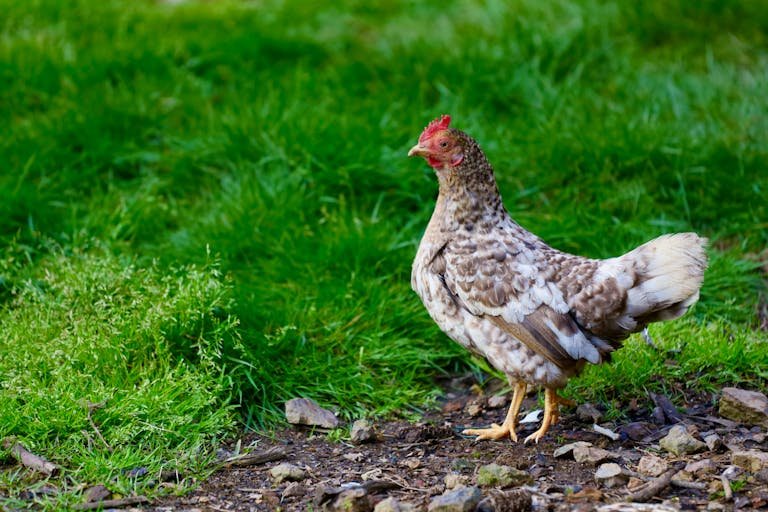Hens: Silent or Symphony? Truth Revealed!
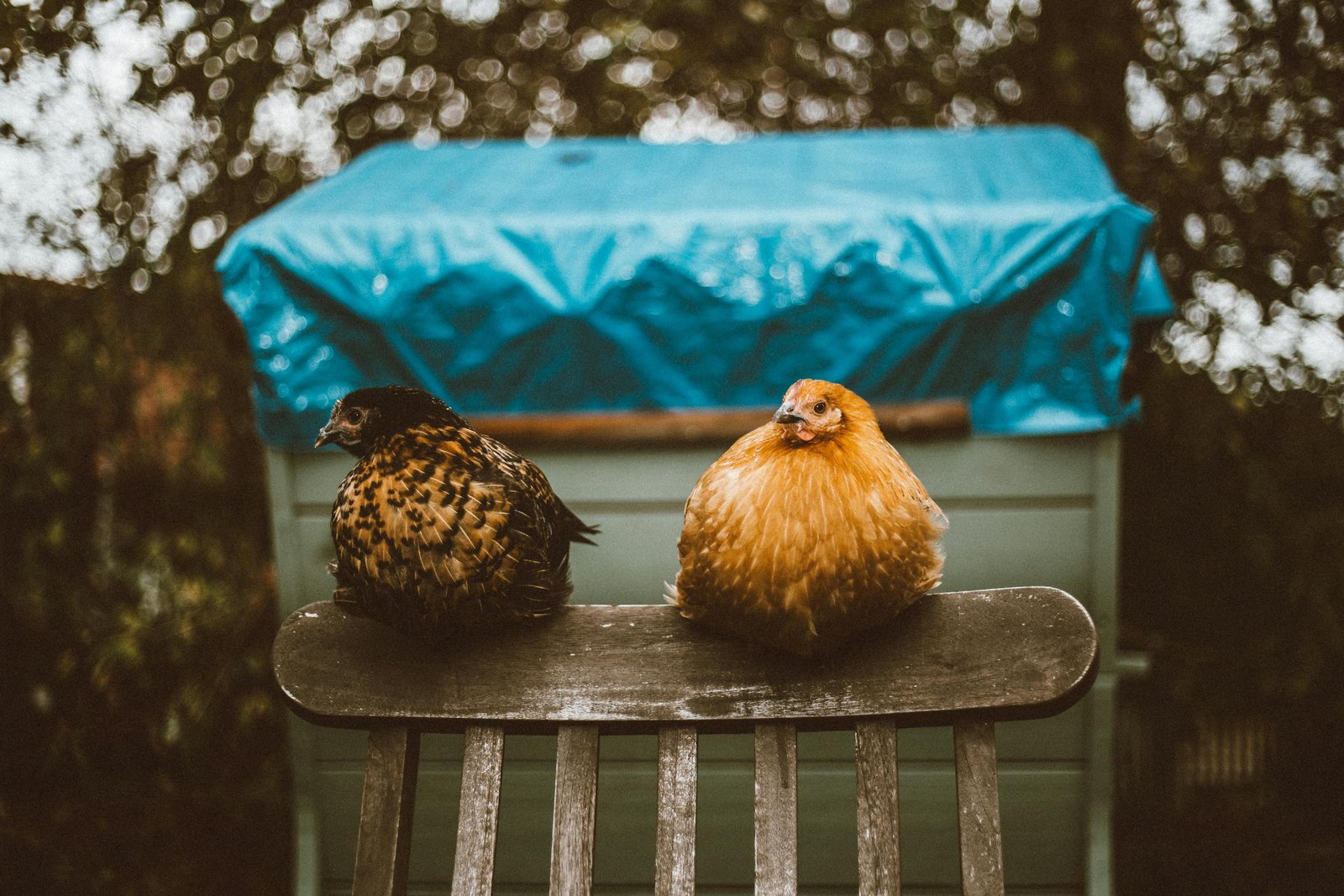
All hens alike are noisy. Noise levels can be significantly different within the breed and between specific individuals. When people hear of backyard chickens, what may come into their minds are birds that are fluffy, and feathered similar to the ones seen in farms and they may not make any noise as they feed on what they find in the compound. But the reality is quite different. Hens are vocal creatures with a repertoire of sounds they use to communicate. Thus, it can be very informative to understand these sounds and get a clue of their actions and states. Learning about these sounds it can provide a lot of knowledge about their actions and conditions.
This, therefore, brings the inevitable question: Do Hens Make Noise? This leads to the short answer of ‘Yes!’ It is now high time we explore more about the hen vocal and what they convey.
Common Sounds Hens Make
Clucking
Among all the poultry sounds that hens produce, clucking is one of the most frequent. It is an effective means of communication with each other, with chicks, and even with the help of contentment.
Cackling
They make a loud drawn-out sound often after a hen comes out of laying an egg. It is how they proclaim to others that they have achieved something great.
Squawking
Hens make sounds which can be referred to as squawks whenever a hen is scared or feels threatened. This is a high-pitched, louder sound that is produced to notify the rest of the flock about any impending danger.
Soft Clucks and Purrs
When the hens are roosting or simply happy they cluck softly and make purring sounds similar to a baby. These noises imply that they are at ease and at home.
Reasons Hens Make Noise
Flock Communication
The hens are social animals and therefore can use vocal sounds to convey information. They can communicate with each other, assert dominance, and recognize familiar hens through clucks, boks and murmurs. This vocal communication is vital so that there can be cohesion within the flock of birds.
Alerting to Danger
Hens possess an elaborate alarm call note system. When it hears or sees a potential threat such as a hawk hovering or a terrestrial predator coming close, it produces high-pitched calls known as squawks. This alarm system enables the flock to rush for cover and this underlines there improved instinct to survive.
Laying Eggs
The crowing sound you hear after the hens lay their eggs is known as the hen’s chuckle. This post-egg-laying celebration enables the members of the flock to know what everyone has been up to and what they are all accomplishing, thus nurturing the social aspect of their existence.
Contentment
Hens that are producing content make gentle toots and purr, as they show signs of satisfaction in their surroundings. These comfortable sounds can be recorded when the hens are roosting or dust bathing or even when they are just resting.
Needs and Wants
Hens also call when they are hungry, thirsty, and when they want attention, some of the calls are clucking and peeping. Recognizing such sounds enables you to attend to their needs early enough to prevent the deterioration of their health or dissatisfaction.
The Egg-Laying Process and Noise
The Loud Egg Cackle
Some of the most distinct sounds that hens are known to make include the loud cackle that occurs right after laying the egg. This sound also has several functions, such as when it is used to announce the laying of eggs and it can also ward off predators from the nest.
Behavioral Patterns During Laying
While laying eggs, birds may be heard to make several sounds. They undergo different activities to look for a suitable place to lay their eggs and they do this by making a cacking sound.
Hens’ Expressions of Contentment
Soft Clucking
Happy chickens produce a gentle click similar to singing when they are feeding, resting, or even playing with one another. These sounds mean a happy, healthy, and contented hen.
Purring Sounds
The other signal of a content hen is purring. This kind of low and constant sound normally signifies that the hen is calm and secure.
Indicators of Well-being
These sounds are worth observing as they will enable you to determine the general health of your hens. Happy, healthy hens are generally more vocal in a positive way.
Understanding Hens’ Needs Through Noise
Signals of Hunger and Thirst
Hens may cluck or peep persistently when they are hungry or thirsty. Paying attention to these sounds can help you meet their needs promptly.
Attention-Seeking Behaviors
Sometimes, hens make noise simply because they want attention. This could be due to loneliness, boredom, or the desire for a treat.
Factors Influencing Hen Vocalizations
Breed
Every hen is not vocal in equal proportion. That is because some dog breeds are naturally more vocal than others. For example, the Leghorn is usually a very noisy breed that clucks incessantly while the Orpington is relatively quieter. Choose a breed with the level of barking that is acceptable to you and your household.
Age
There are differences in the songs that hens make and these can be determined by the age of the hen. Very young hens or pullets are much more curious and are likely to make noise as they wander around. While younger hens are noisier the older ones are also known to make some noise, especially when laying eggs or when there is any danger.
Environment
A calm environment, which guarantees the absence of possible threats and a shortage of food and water, will entail more cheerful clucking and less squawking. On the other hand a stressful environment due to the presence of predators or low availability of resources results in high pitch and frequent vocalization of distress calls.
The Benefits of Hen Vocalizations
For the Flock
Sexual calls play an important role in the stability of flock organization. These sounds assist hens in informing each other about positions in the pecking order or about the presence of threats. It is, therefore, easier to manage a flock that communicates well and engages in less conflict.
For the Caretaker
To all who take care of hens, these vocalizations are very helpful signals of the birds’ condition. This is very beneficial because you can easily tell that there is something wrong with your hens, whether it is illness, stress, or a threat to their environment, and attend to it immediately.
Read Also: Can Chickens Eat Banana Peels?
Final Words
Thus, it could be concluded that, while hens are loud animals, all the noises they produce are functional. From clucking to cackling, squawking to purring, these vocalizations afford us a window into their conduct and health. When you know why hens are noisy or what a particular noise signifies, you can properly attend to your chickens and ensure that they are comfortable and you too are comfortable with the noises that they produce.
